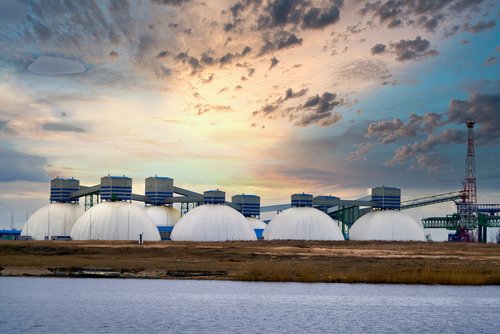Belgium, (Brussels Morning) Lawmakers in the European Parliament approved plans to guarantee a threshold of gas reserves before the winter. The measure, which intends to refill storage to protect citizens and businesses if the gas supply is cut, contemplates a minimum of 80% gas storage level by 1 November 2022.
The legislation was adopted today with 490 votes to 47, and 55 abstentions. It now requires the formal approval by the Council, after which it would enter into force in July.
Gas for rubles
Energy Commissioner Frans Timmermans said today that a total of 12 countries have, so far, been affected by Moscow’s decision of turning off the taps flowing gas to Europe.
Bulgaria and Poland were the first countries to see their gas supplies cut by the Kremlin after Moscow demanded these countries pay for the Russian commodity in rubles. The Netherlands, France, and Italy followed. In Germany, a sharp decrease in supply prompted the country to activate a state of the emergency plan.
While addressing the Parliament today, Timmermans said: “The risk of a full gas disruption is now more real than ever before. That is why the adoption of the gas storage regulation … is so important at this moment.” EU’s total storage capacity stands currently at around 55% of capacity, according to Gas Infrastructure Europe (GIE).
“Countries with large storage capacities will be obliged to have at least 35% of their consumption there. Countries that do not have a storage capacity will need to conclude agreements with the other member states to store the necessary quantities of gas for them,” said rapporteur and Industry, Research and Energy Committee Chair Cristian Buşoi (EPP).
EU gas operators
Prior to Russia’s cut of gas to a number of EU countries, the European Network of Transmission System Operators for Gas (ENTSOG) said in a press statement on April 28 that in a scenario of Russian supply disruption starting on 1 April, most European countries would not reach the 80% or 90% storage level target on 1 October.
Published on April 28, ENTSOG’s General Director Piotr Kus commenting on the network’s Summer Supply Outlook 2022 and Summer Supply Review 2021 said: “The report shows that on 1 April 2022, the EU average storage level (26%) is in the range of previous season. However, reaching a minimum filling level in the European gas storages at the end of the summer season is essential for ensuring the security of supply for the upcoming winter.”
Certification for gas storage facilities
Under the new regulation, which has already been agreed upon by EU ministers, gas storage facilities will become critical infrastructure. This means that all storage operators will have to undergo new mandatory certification to avoid risks of outside interference. Operators who fail to secure this certification will have to give up ownership or control of EU gas storage facilities.
“The regulation is the answer to the current situation. Gazprom is using energy supply as a weapon (…) so we’ve got our protective shield”, said MEP Jerzy Buzek (EPP), who is leading the Parliament’s negotiating team.
Joint procurement
By August 2022, the Commission said it will issue guidance on how EU countries can jointly procure gas, to be activated voluntarily by two or more EU countries.
The University of Bergen, in Norway, recently debated the geopolitical implications and competition law barriers of joint purchasing energy. The University argues that “a key legal challenge for joint procurement, is that this would involve terminating or amending existing long-term contracts with Gazprom.”
As Gazprom might offer beneficial terms to customers who leave in an attempt to break the solidarity, maintaining the internal stability of the group would be difficult.




